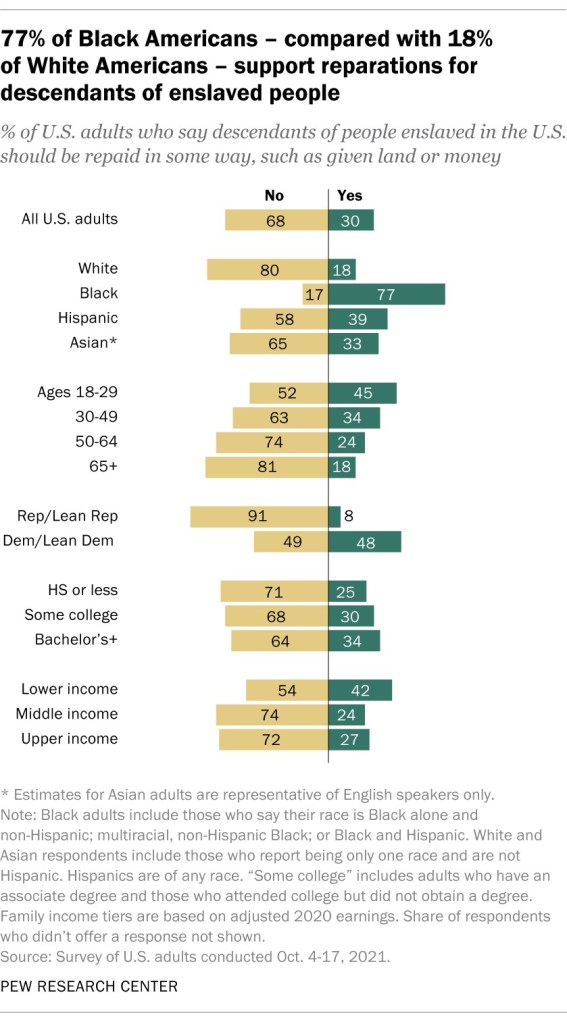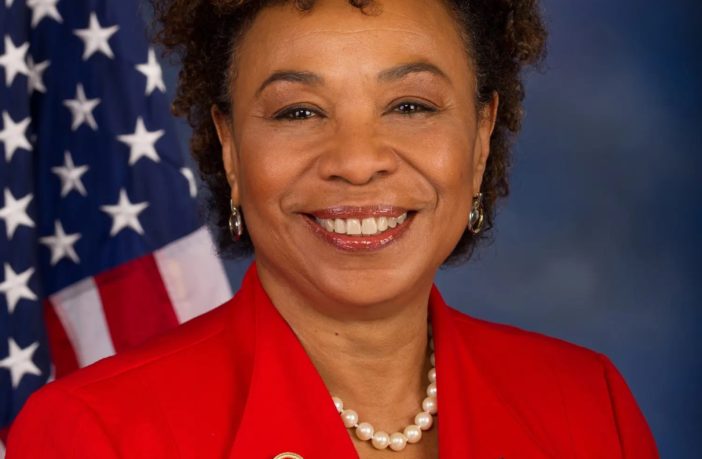By Deborah Bailey,
AFRO Contributing Editor
Legislation regarding reparations is still alive on Capitol Hill, but it is nowhere near the big-ticket topic of discussion it has been in the last two summers.
In June of 2021, as Americans of all backgrounds celebrated Juneteenth as a federal holiday for the first time, backers of federal reparations legislation thought a bill providing for the study of reparations was finally on its way to the U.S. Congress.
Not so.
Now, three summers after the murder of George Floyd during a Minneapolis traffic stop caused a global cry for social justice in the Black community, reparations legislation still lingers, moving painfully slow as it sojourns through the Halls of Congress, now infused with new blood.
“Black people in our country cannot wait any longer for our government to begin addressing each and every one of the extraordinary bits of harm it has caused since its founding,” said Missouri Congresswoman Cori Bush (D-MO-1) at a press conference.
Bush announced her Reparations Now resolution, which calls for $14 trillion in restitution funding to Black Americans, introduced on May 18. The legislation supports the passage of H.R. 40 – a Resolution authorizing a commission to study the impact of slavery and recommend reparations.
 The California Reparations Commission will issue its final report to Governor Gavin Newsome at the end of June. Pictured here is a photo of California’s Reparations panel in May. (Photo Credit: Associated Press Sophie Austin)
The California Reparations Commission will issue its final report to Governor Gavin Newsome at the end of June. Pictured here is a photo of California’s Reparations panel in May. (Photo Credit: Associated Press Sophie Austin)
Bush, a registered nurse, and community activist, who is the first Black woman to represent Missouri, came to Congress in January 2021 and witnessed in her first year, the hope that many across America felt: reparations legislation was finally within reach. She saw that hope fade after the summers of 2021 and 2022 passed without a national reparations bill – and no action toward passage by the House of Representatives.
“Our federal government refuses to acknowledge the lasting harms of slavery and the unjust world it created for Black people,” Bush said in a statement last month.
This year’s House Reparations legislation carries 94 sponsors as we head into another uncertain summer, far less than the close to 200 sponsors who supported reparations in prior years. Some advocates of reparations believe a bill should have come to the floor while Democrats held the majority in the House of Representatives.
Rev. Ron Daniels, convener of the National African American Reparations Commission (NAARC), believes President Biden can appoint the Reparations Study Commission called for in HR-40 by executive order, rather than wait for Congress.
Daniels remarked that an ideal time for Biden to issue an executive order calling for a reparations commission came several months ago in December 2022, when the State Department hosted the first US-African Leaders Summit in December. Biden used his address to African leaders during the 3-day summit held in the nation’s capital to build trade relationships and dismantle the old “aid-based” U.S.-African relationship paradigm.
During the summit, he apologized to African leaders for America’s role in using Africa to fuel the Transatlantic Slave Trade.
“We remember the stolen men and women and children were brought to our shores in chains, subjected to unimaginable cruelty,” Biden remarked to delegates of the 48 African Nations.
 Congressman from across the country propose legislation for reparations in their
Congressman from across the country propose legislation for reparations in their
respective states a century after slavery was abolished. (Photo Credit: NAARC)
“It’s past time to begin the process of [repairing]the injuries of enslavement and [the]legacies inflicted by [it in]the U.S. Government,” Daniels said in a statement. “It would have been awesome to apologize to African leaders and then announce your intent to enact HR-40 to study and develop reparations proposals for African Americans,” he continued.
While the slow wheels of federal progress grind, state and local efforts toward reparations show the greatest chance for actualization. Well thought through community-driven efforts are well underway in several places that may create a blue-print for a path forward for reparations on the national level.
Local reparation efforts are also being considered by governments across the nation.
Evanston, Ill., a suburb of Chicago, is moving forward to establish payout plans for residents who are the descendants of slavery. Evanston is the first city in the county to develop and fund a $10 million reparations plan with proceeds from a three percent tax on recreational marijuana sales. The City Council has approved a cash payout plan that would allocate up to $25,000 per eligible resident.
According to a recent survey by the Pew Research Center, Black and White Americans are still far apart in their views on reparations. According to the Poll, more than 75 percent of Black adults affirm some form of repayment for the descendants of enslaved Americans while only 18 percent of Whites agreed that repayment was justified.



